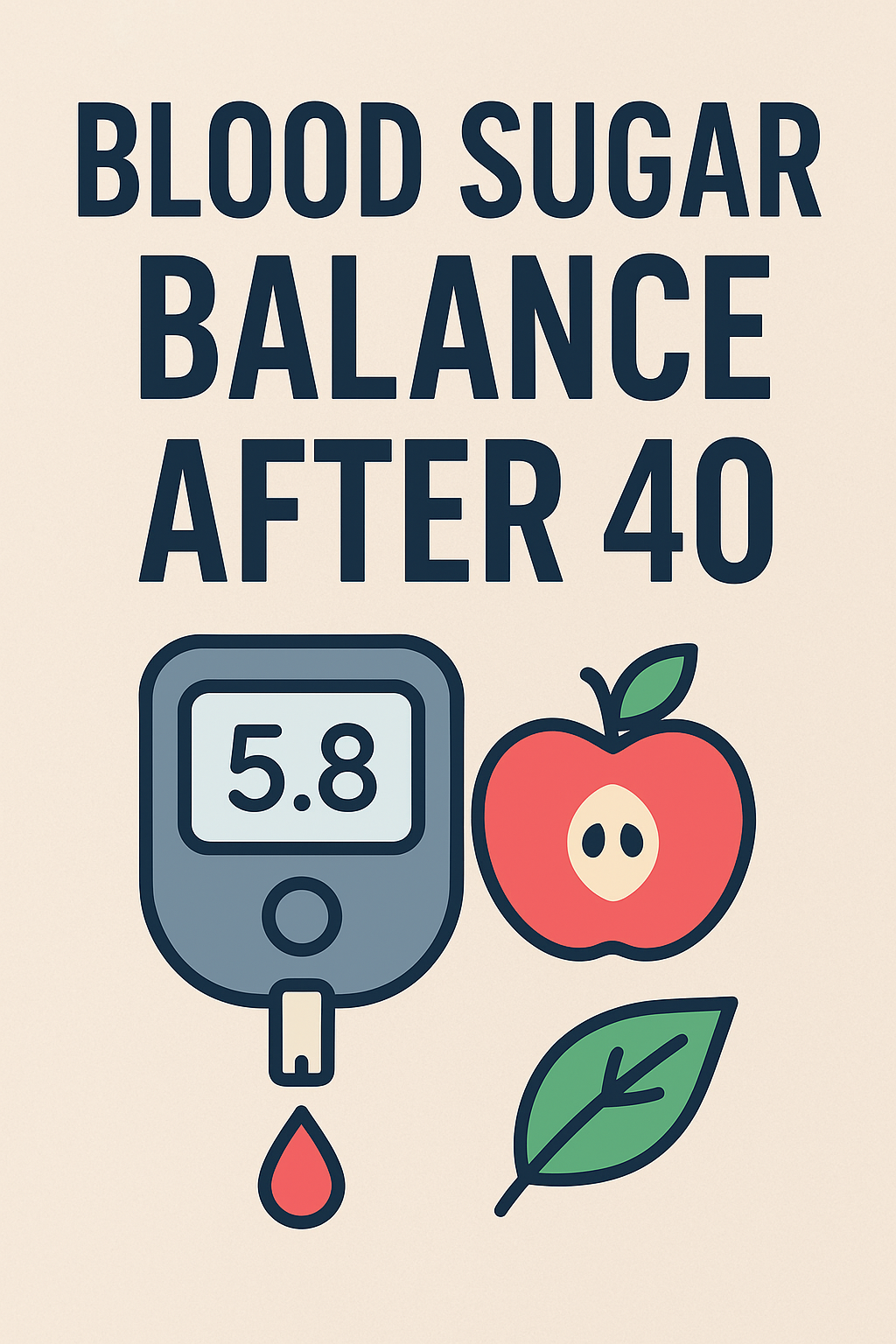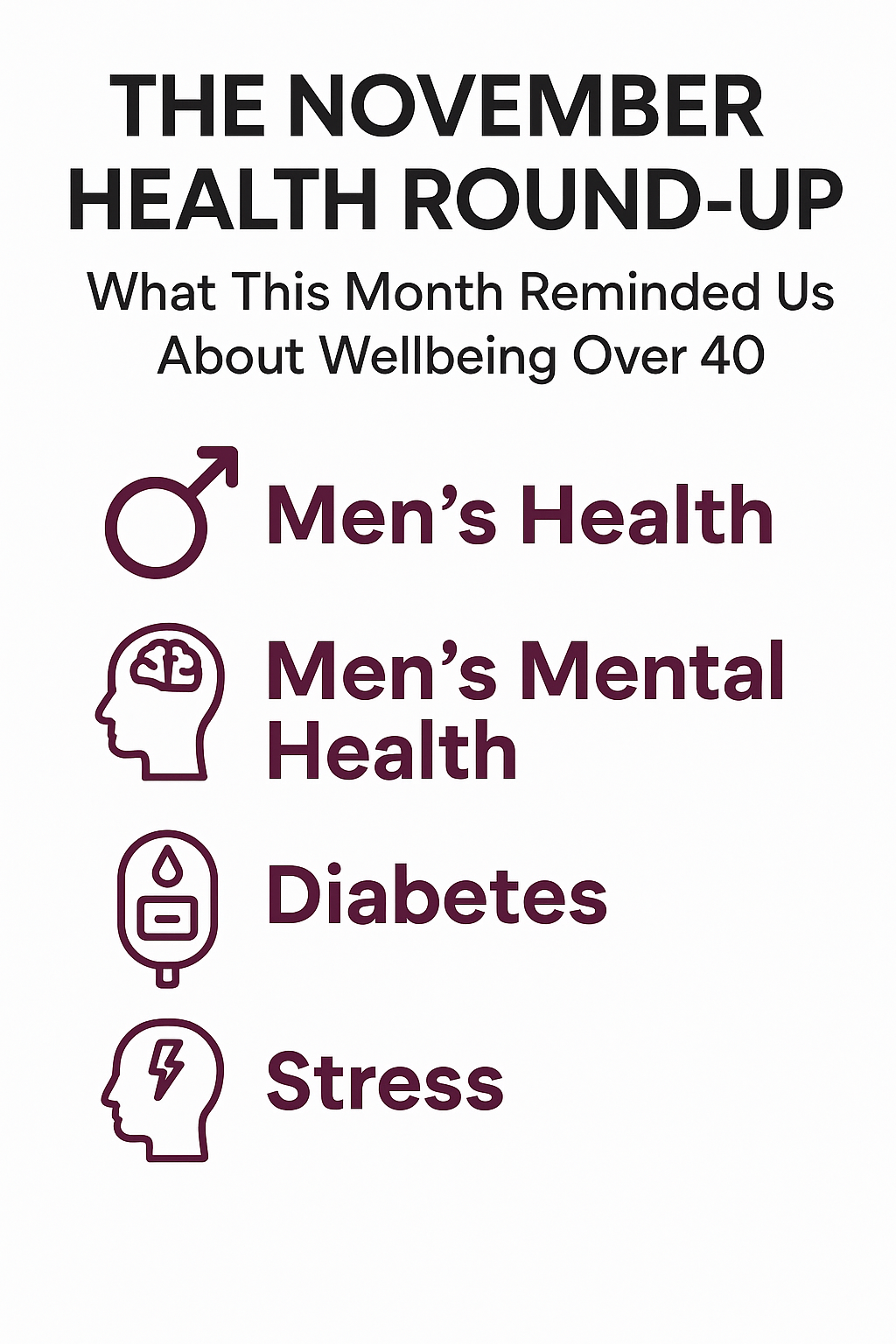November isn’t just about moustaches and prostate awareness. It’s also Men’s Mental Health Awareness Month, a time dedicated to breaking down stigma, encouraging connection, and elevating support for men’s emotional wellbeing. Awareness Days+1
Why Men’s Mental Health Is Critical After 40
- The pressures many men face in midlife — career demands, family responsibilities, financial stress — can trigger anxiety, depression, and chronic stress.
- Men are far less likely than women to talk openly about mental health or to seek professional support. UKATA
- Misunderstandings about masculinity and strength often mean men internalise pain rather than reach out.
What Is International Men’s Day (19 November)?
November 19 is marked as International Men’s Day, an opportunity to recognise men’s contributions to society while shining a light on their mental health challenges. Awareness Days+1
It’s more than a celebration — it’s a call to action. Action Together
How Nutrition Supports Mental Health
We tend to separate “physical health” and “mental health,” but they are deeply interconnected — especially through nutrition. Here’s what matters:
- Protein-rich foods help stabilise blood sugar, which supports mood and energy regulation.
- Omega-3 fats (from fish, flax, chia) support brain health and resilience.
- Whole grains and fibre feed your gut microbiome, where so much mental-health regulation happens.
- Magnesium-rich foods (leafy greens, nuts) reduce stress reactivity and support sleep.
- Minimising ultra-processed foods helps because they’re linked to inflammation and poorer mental well-being.
Practical Steps to Promote Emotional Well-being
- Make time for honest check-ins — with yourself and with others. Men often don’t talk, not because they don’t want to, but because they don’t think it’s “allowed.”
- Routine matters — consistent meals, regular sleep, and small pauses during the day help stabilise mood.
- Activity is medicine — strength training, brisk walking, or movement you enjoy can lower stress hormones.
- Seek connection — peer support groups, therapy, or talking to trusted people can be life-changing.
- Be gentle with yourself — building emotional resilience is a marathon, not a sprint.
Why This Blog Matters Right Now
- Movember is shining a spotlight on men’s health. Awareness Days
- International Men’s Day is urgent — reminding men (and those who support them) that mental health is central to wellbeing, not optional.
- For anyone over 40, this is a perfect moment to reflect on life with intention: how am I feeling? Am I coping? What tools can I build to protect my mental health going forward?
If you’re reading this and feel like you’ve been “holding in” more than usual — you’re not alone.
Strength is not just physical. Asking for help, caring for your mental health, and leaning on others when things feel heavy — that takes courage.
If you’d like guidance on building habits that support emotional resilience, I’m here for you.
Warmly,
Milvia Pili, FNTP
Functional Nutritional Therapy Practitioner




